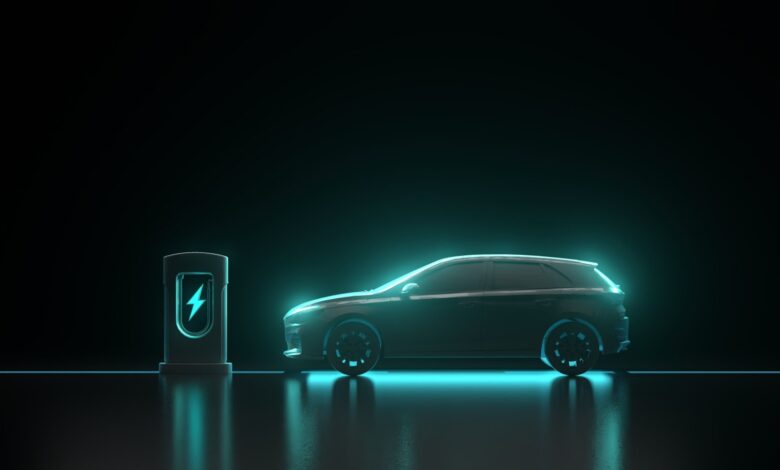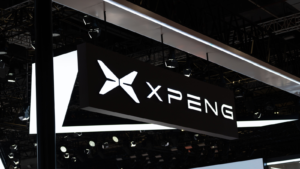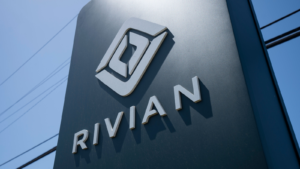3 EV Stocks That Could Be Decimated by a Trump Presidency

Source: shutterstock.com/JLStock
EV stocks have been among the worst-performing options for investors over the past few years. High interest rates have caused EV sales volumes to plummet. However, while many have banked on cyclical tailwinds inflecting after rate cuts, there are potentially even worse headwinds coming into play going forward.
For example, hybrids are starting to become more and more popular. Many car buyers like the flexibility and the efficiency gains hybrids offer. I think this trend could be one that could remain a thorn in the side of many pure-play EV companies in the coming years.
In the near-term, I think a Trump presidency would be the nail in the coffin for a lot of EV startups. Of course, this upcoming election could swing either way. But if the former president does return to office and starts undoing EV tax credits and subsidies, it won’t be a pretty picture for EV-makers.
With that in mind, here are three EV stocks to sell before the election.
Nio (NIO)

Source: Freer / Shutterstock.com
NIO (NYSE:NIO) is a Chinese electric vehicle manufacturer that is facing significant headwinds in the current geopolitical climate. The company’s Q1 2024 earnings were disappointing, with a wider-than-expected loss of 36 cents per share, and revenue of $1.37 billion (this revenue number missed estimates by $110 million). Overall, the fundamental trends for Nio haven’t been very promising.
Nio’s vehicle margin was a meager 9.2% in Q1, and while deliveries are expected to grow in Q2, I believe the company’s profitability will remain under pressure.
The Biden Administration’s tariffs on Chinese EVs and solar panels are likely to further strain Nio’s bottom line, and the prospect of a Trump presidency could be devastating for the stock. With a net margin of nearly -33%, Nio is losing money on each car sold. And despite having $5.3 billion in cash, the company’s $4.5 billion debt load and projected $3 billion in losses for 2023 paint a bleak picture. Analysts expect profitability in 2027, but I’m not sure if the stock can survive until 2027 without significant dilution.
XPeng (XPEV)

Source: THINK A / Shutterstock.com
XPeng (NYSE:XPEV) is another Chinese electric vehicle maker that just reported mixed Q1 2024 results. While revenue grew 58% year-over-year to $905 million, the company is still bleeding cash with a net loss of 21 cents per share. Gross margins did improve to 12.9%, but that’s still razor-thin for an automaker. Its cash-to-debt ratio is also getting worse.
I believe XPeng’s ambitions to become a major player in the global EV market will likely remain a pipe dream, especially with the prospect of Trump regaining the White House in 2024. Due to trade tensions, the company has already abandoned plans to enter the U.S. market. But even within its home market of China, XPeng is struggling to gain traction against larger rivals like BYD (OTCMKTS:BYDDF) and NIO.
Management’s commentary about leveraging its AI investments also rings hollow to me. Burning more cash on speculative moonshots like eVTOLs seems ill-advised when the core auto business remains unprofitable with slowing growth.
That said, you may ask how a Trump presidency could hurt Xpeng if it has already admitted it won’t expand into the U.S. I’d urge you to look at what happened with Huawei. Xpeng is expanding into many U.S-allied markets, and Trump could persuade these countries to ditch Chinese EV companies. If that’s the case, the death knell may already be tolling.
Rivian (RIVN)

Source: Tada Images / Shutterstock.com
Rivian (NASDAQ:RIVN) makes electric trucks, SUVs, and delivery vans. While Rivian exceeded expectations in Q1 with $1.2 billion in revenue (up 82% year-over-year), and produced its 100,000th vehicle, I believe a potential Trump presidency poses grave risks to the company. Rivian is highly vulnerable to Trump’s vows to roll back EV tax credits and subsidies that have fueled its growth so far. Without these key incentives, consumer demand for Rivian’s pricey vehicles could plummet.
Most U.S. EV startups are already on life support, and Rivian is no different. The company is still deeply unprofitable, losing $1.24 per share in Q1. If Trump shreds the EV-friendly policies enacted under Biden as threatened, stating, “You won’t be able to sell those cars,” it could be a death blow to Rivian. The company has built a strong brand, with 5.1% U.S. EV market share in Q1, but that momentum could rapidly evaporate.
Even if tax credits and subsidies stay in place, the company’s losses are too steep to make Rivian investable. That’s my view right now.
On the date of publication, Omor Ibne Ehsan did not hold (either directly or indirectly) any positions in the securities mentioned in this article. The opinions expressed in this article are those of the writer, subject to the InvestorPlace.com Publishing Guidelines.



